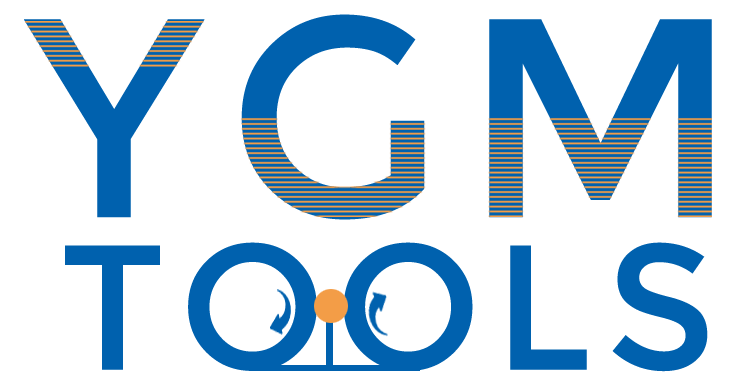
-
 Afrikaans
Afrikaans -
 Albanian
Albanian -
 Amharic
Amharic -
 Arabic
Arabic -
 Armenian
Armenian -
 Azerbaijani
Azerbaijani -
 Basque
Basque -
 Belarusian
Belarusian -
 Bengali
Bengali -
 Bosnian
Bosnian -
 Bulgarian
Bulgarian -
 Catalan
Catalan -
 Cebuano
Cebuano -
 Corsican
Corsican -
 Croatian
Croatian -
 Czech
Czech -
 Danish
Danish -
 Dutch
Dutch -
 English
English -
 Esperanto
Esperanto -
 Estonian
Estonian -
 Finnish
Finnish -
 French
French -
 Frisian
Frisian -
 Galician
Galician -
 Georgian
Georgian -
 German
German -
 Greek
Greek -
 Gujarati
Gujarati -
 Haitian Creole
Haitian Creole -
 hausa
hausa -
 hawaiian
hawaiian -
 Hebrew
Hebrew -
 Hindi
Hindi -
 Miao
Miao -
 Hungarian
Hungarian -
 Icelandic
Icelandic -
 igbo
igbo -
 Indonesian
Indonesian -
 irish
irish -
 Italian
Italian -
 Japanese
Japanese -
 Javanese
Javanese -
 Kannada
Kannada -
 kazakh
kazakh -
 Khmer
Khmer -
 Rwandese
Rwandese -
 Korean
Korean -
 Kurdish
Kurdish -
 Kyrgyz
Kyrgyz -
 Lao
Lao -
 Latin
Latin -
 Latvian
Latvian -
 Lithuanian
Lithuanian -
 Luxembourgish
Luxembourgish -
 Macedonian
Macedonian -
 Malgashi
Malgashi -
 Malay
Malay -
 Malayalam
Malayalam -
 Maltese
Maltese -
 Maori
Maori -
 Marathi
Marathi -
 Mongolian
Mongolian -
 Myanmar
Myanmar -
 Nepali
Nepali -
 Norwegian
Norwegian -
 Norwegian
Norwegian -
 Occitan
Occitan -
 Pashto
Pashto -
 Persian
Persian -
 Polish
Polish -
 Portuguese
Portuguese -
 Punjabi
Punjabi -
 Romanian
Romanian -
 Russian
Russian -
 Samoan
Samoan -
 Scottish Gaelic
Scottish Gaelic -
 Serbian
Serbian -
 Sesotho
Sesotho -
 Shona
Shona -
 Sindhi
Sindhi -
 Sinhala
Sinhala -
 Slovak
Slovak -
 Slovenian
Slovenian -
 Somali
Somali -
 Spanish
Spanish -
 Sundanese
Sundanese -
 Swahili
Swahili -
 Swedish
Swedish -
 Tagalog
Tagalog -
 Tajik
Tajik -
 Tamil
Tamil -
 Tatar
Tatar -
 Telugu
Telugu -
 Thai
Thai -
 Turkish
Turkish -
 Turkmen
Turkmen -
 Ukrainian
Ukrainian -
 Urdu
Urdu -
 Uighur
Uighur -
 Uzbek
Uzbek -
 Vietnamese
Vietnamese -
 Welsh
Welsh -
 Bantu
Bantu -
 Yiddish
Yiddish -
 Yoruba
Yoruba -
 Zulu
Zulu
High-Quality Thread Rolling Machine and Its Import HS Code Explained
Understanding High-Quality Thread Rolling Machines and Their HS Code
In the world of manufacturing, thread rolling machines play a crucial role in producing high-quality threaded components used in various industries, including automotive, aerospace, and electronics. The significance of these machines cannot be overstated, as they ensure precision and durability in the final products. To navigate the complexities of import and export, it is important to understand the HS Code associated with these machines.
What is a Thread Rolling Machine?
A thread rolling machine is a specialized piece of equipment used to create threads on metal rods or other materials through a process known as cold forming. Unlike traditional methods that may involve cutting or machining, thread rolling involves the deformation of the material under high pressure to achieve the desired thread profile. This method has several advantages, such as enhanced strength, improved surface finish, and the ability to produce threads without significant waste of material.
These machines have various configurations, including flat die, cylindrical, and planetary thread rolling machines, each designed for specific applications and material types. High-quality machines are often equipped with advanced features such as programmable controls, automated feeding systems, and high-speed operation capabilities, enabling manufacturers to increase productivity while maintaining quality standards.
The Importance of Quality
Quality is paramount in the production of threaded components. A high-quality thread rolling machine will ensure the threads produced meet stringent specifications, reducing the likelihood of failure in their subsequent applications. Industries such as aerospace require highly reliable components due to the critical nature of their applications. Thus, investing in a top-notch thread rolling machine is essential for manufacturers aiming to deliver superior products.
high quality thread rolling machine hs code

High-quality machines are often constructed from durable materials and are designed to withstand the rigors of production environments. This durability not only extends the life of the machines but also reduces maintenance costs and downtime, which can be particularly expensive in a manufacturing setting.
HS Code for Thread Rolling Machines
When engaging in international trade, knowledge of the Harmonized System (HS) Code used for categorizing products for customs purposes is essential. The HS Code is an internationally standardized system of names and numbers designed to classify traded products. Each product type carries a unique numerical code that simplifies the process of tracking goods across borders.
For thread rolling machines, the typical HS Code falls under the broader category of Machine tools for working metal and generally starts with the digit 84. More specifically, thread rolling machines may be classified under the HS Code 8462, which is designated for Machine tools for turning, milling, drilling, or similar operations. However, it is crucial for manufacturers and traders to consult the latest customs documentation or a trade compliance expert to ensure accurate classification as codes can vary by country and specific applications.
Conclusion
In conclusion, high-quality thread rolling machines are indispensable in producing precise and durable threaded components essential for various industries. Understanding their significance and the appropriate HS Code associated with them is crucial for manufacturers and traders engaged in international commerce. By investing in high-quality machinery and navigating the complexities of trade regulations, businesses can enhance their operational efficiency and competitive edge in the global market. Whether you're manufacturing components for the aerospace industry or automotive applications, recognizing the value of quality will invariably lead to long-term success.
